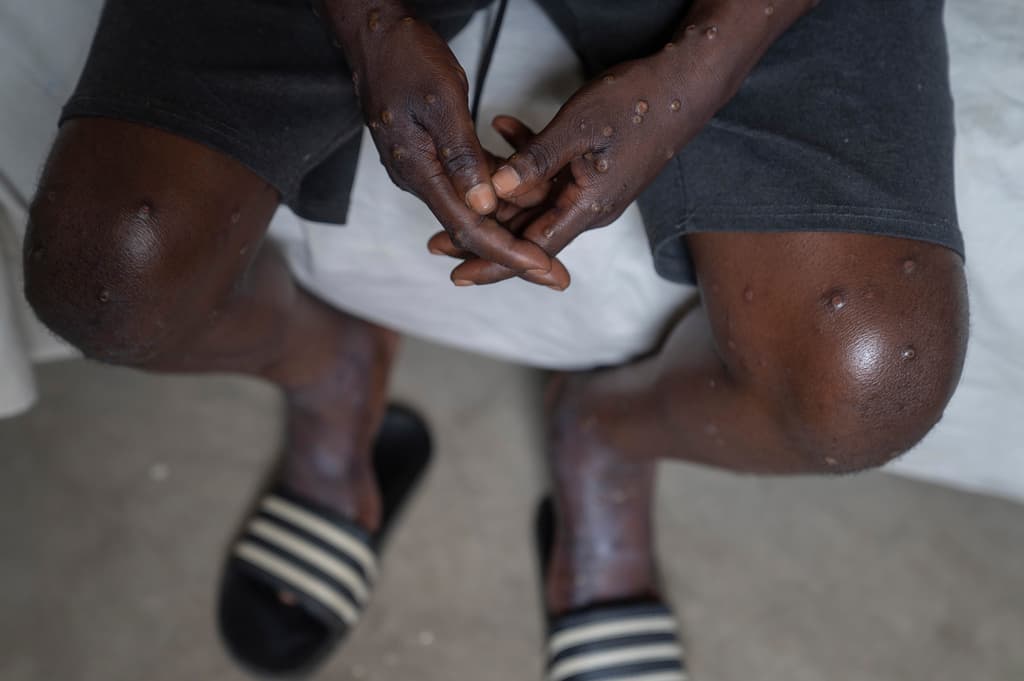Children also run four times greater risk of dying from the disease than adults, according to Katarina Schroeder. According to Sveriges Radio, 16,000 people have been infected and 500 have died from the disease so far this year, which previously was strongly concentrated in Central Africa. However, the dark figure is believed to be large.
The disease is usually transmitted through close physical contact, primarily intimate. But it can also spread through surfaces such as bedding or towels.
On Wednesday, WHO declared a global health emergency due to the spread of mpox.
In Sweden
A first case of the more contagious variant of mpox has been confirmed in Sweden, announced Social Minister Jakob Forssmed (KD) on Thursday. The new variant, called clade 1, is now spreading mainly in Africa. It is believed to be both more contagious and deadly than clade 2, which has been present in Sweden since before.
A case has also been confirmed in Pakistan. According to the authorities, the person had traveled to a Gulf country. Which variant the person was infected with is not established.
Vaccine and Medication
That a patient with mpox is being cared for in the country does not increase the risk for the general population, according to Olivia Wigzell, acting director-general of the Public Health Agency.
The case itself does not, as we have assessed, require any additional infection control measures at present, but we are of course following the development closely, she said yesterday.
There is a vaccine against the disease. There are also medications that seem to have some effect against the infection and can be used in severe cases.
Mpox, previously called monkeypox, is a viral disease. In the spring of 2022, an unusually large number of cases were discovered in several countries. The transmission of the virus then mainly occurred through sexual contacts between men who have sex with men. This variant is called clade 2.
The variant of mpox that is now spreading mainly in Africa, called clade 1, is believed to be both more contagious and deadly than clade 2.
Mpox often causes rashes, sores, and blisters on the torso, arms, legs, hands, and feet, as well as on the face, and also fever. The symptoms have often been mild but can become severe in risk groups.
The disease usually heals on its own within two to four weeks, but can become more severe for those with impaired immune systems. Children and young people are also believed to have a greater risk of becoming seriously ill.
Source: FHM






